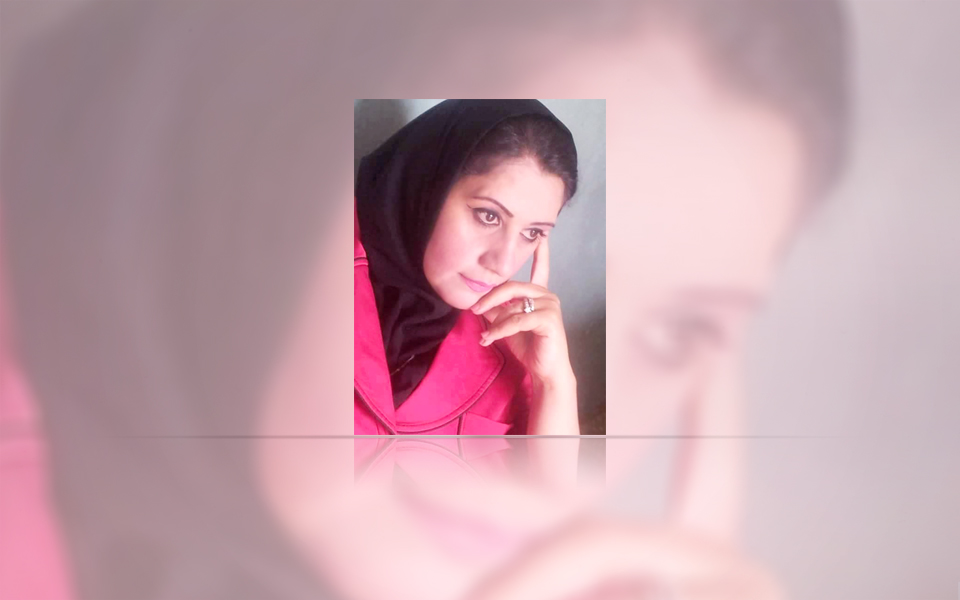The promulgation of poetry’s human and cultural existence represents a risky bet for most publishing houses in the Arab world and requires them to promote awareness among the community about the importance of the literary form in our life. Consequently, these publishing houses have many responsibilities towards the community, its culture and creativity, in terms of approving, publishing and distributing poetry collections.
Current conditions have led poets to negotiate and work hard to strike a reasonable deal with publishing houses to publish their poetry collections, which is something that has become increasingly rare in the Arabic poetry arena. Many recently-published collections are self-funded by poets who face the crises of sales, distribution and promotion.
The decline of poetry is connected to the decline of the middle-class
Iraqi critic Dr. Hotham Bader stressed that the crisis of poetry is not limited to the Arab world but is a global phenomenon. She pointed out that when Spanish renowned poet Juan Ramón Jiménez was asked ‘What kind of men and women read poetry?’ he uttered what he had already written in one of his books, ‘the vast minority!’
“The decline of poetry might be the direct result of the decline of the middle-class in societies where reading poetry was once appreciated and celebrated. The economic changes lead to other changes in morality, general behaviour and politics and individuals become instant consumers who think neither about the past nor the future, totally drowned in social media networking and fake – so called virtual – reality. Besides, the majority of readers prefer reading novels to poetry collections; even some poets started writing novels after they found that the novel features different genres of art, including poetry. The value of any book is measured by the number of readers who buy it and the decline in the number of poetry readers necessarily affects the printing of poetry books by publishing houses, which are driven by economy after all,” said Dr. Bader.
The poetry crisis needs joint governmental and non-governmental efforts
Poet Omar Al Sarai, Administrative and Financial Secretary at the Iraqi Writers Union, pointed out that the poetry book suffers because generally it cannot find a publishing house that can carry the distribution task. He underlined that ‘reception’ – which translates as the demands and requirements from readers – such as the shape, size, and kind of books that are suitable for them, should be addressed before discussing publishing and distribution.
Al Sarai emphasised that cultural institutions need to study the feasibility and usefulness of printing any book, including poetry collections, before finding a successful method to distribute it through a specialised distribution house which has experience in advertising and marketing. On the efforts of cultural institutions, including Arab writers’ unions, he said: “I believe that the problem is far too complex for any single institution to solve, so we need to join hands with governmental and non-governmental institutions, because individual projects are somehow elitist.”
“The Iraqi Writers Union is preparing to launch a new risky project. It will publish a series of books by authors at half the original price in an Arab publishing house, which achieves marketability through participating in Arab book fairs. The books will be distributed internally and will be delivered to the Arab writer’s unions. The dream is to provide books to every household and build a knowledge-based society,” he added.
The publisher conceives poetry as depressed merchandise with the result that poets themselves pay for their own creativity
Iraqi publisher Fares Al Kamel, Owner of ‘Al Muakedeen’ Publishing and Distribution House in Basra, explained: “Any publishing house is a business after all and since readers of poetry are few, the sales of the poetry collections are so low and weak to the extent that they do not even cover printing costs. In contrast these houses compete fiercely to publish novels because their sales are high.”
“Even though poetry is important and influential, it is considered as depressed merchandise by publishing houses, economically speaking, when compared to history books, novels and other literary genres. This often drives poets to pay for the printing costs for their poetry collections and later on distribute them free as part of literary and intellectual courtesies. If we ask a novelist like Sinan Antoon, who started his literary career as a poet, about the comparison between the sales of his first poetry collection and those of his first novel ‘Only the Pomegranate Tree?’ the answer will be clear and will not need a comparison between poetry and other creative literary genres,” he added.
Bad poets harm the publishing market and ruin poetry standards
Iraqi publisher Mazen Lateef, Owner of Mesopotamia House for Publishing and Distribution in Baghdad, describes how Iraq has bucked this trend, with high levels of poetry publishing in the country since 2003. He says that even though poetry scored fewer gains and reduced profits for most Arab and international publishing houses things have been different in Iraq, because as soon as an amateur gives the publisher in the country the right sum of money, the majority publish their collections regardless of their poor content.
Lateef highlighted the importance of finding a committee, which comprises a number of renowned poets who have contributed positively to the literary sphere in Iraq, to supervise the publishing of poetry. He noted that the Iraqi market was full of bad poetry because whoever writes something – whether a flash, an idea or a story on social media sites – suddenly becomes a poet. Meanwhile, true creative poets are obliged to publish their collections at their own expense.
The crisis of poetry is getting worse and needs immediate substantive solutions for its serious issues that are deepening the gap between the form and the reader. The publishing houses need to adopt creative projects and visions that successfully rejuvenate Arabic poetry and promote it regionally and internationally.







